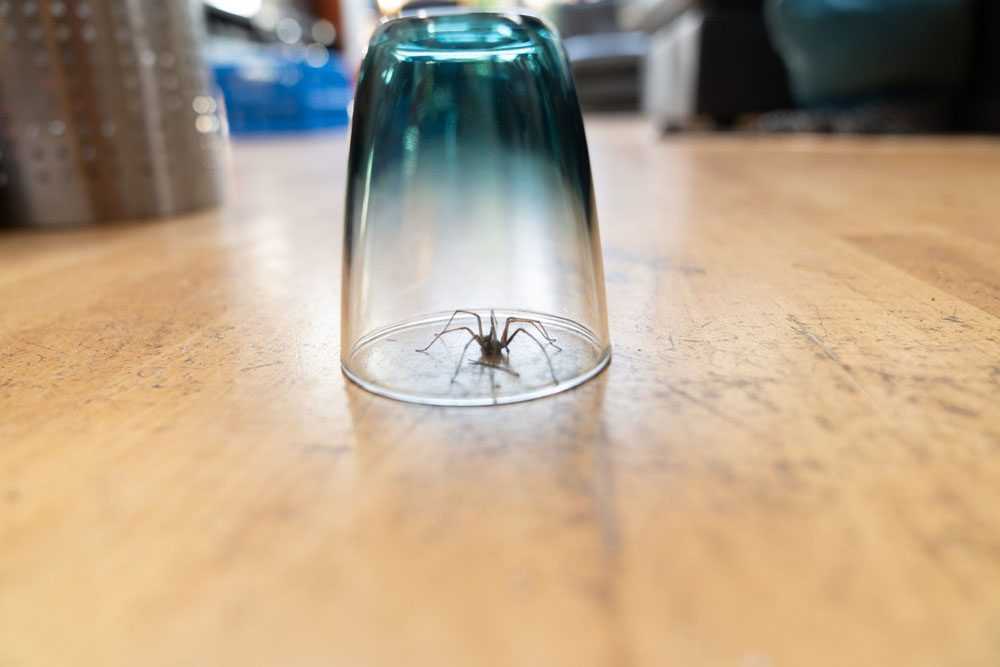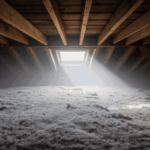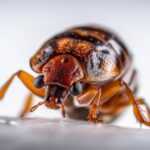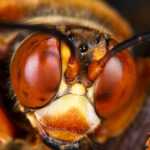Are you seeing spiders frequently in your home?
You see spiders repeatedly in the home, on porch lights, more spiders on the walkway, even more spiders in the nooks and crannies of the patio this time of year. When you least expect it, you can find yourself walking into a web. It seems as if you cannot get away from them anywhere in the Northwest this time of year. Actually, some of the spiders you are seeing now were very busy during the course of the summer with chores of their own.
Typical months for increased spider activity
Summer and autumnare the working seasons for most spiders. Spiders in and around homes help maintain the size of other insect populations. They are valuable predators whose ability to control the bug populations in and around homes is better than most bird species. People typically underestimate their usefulness. Most spiders are quite harmless and are most interested in bugs than in harming humans contrary to popular belief.
The classic order of the spider’s life and its symbolism
During the month of May, most spiders are born, thus during the summer months spiders are much smaller and not fully-grown. They are not as noticeable to most people. Spiders in the home or garden hide, keeping themselves busy feasting on the various insects in bushes, on the ground, in the grass and around the house. Spiders maintain a customary seasonal timetable. They hatch in the spring, and then procreate and die in the fall. In autumn, spiders who have made it through the summer develop into adults to begin spinning their artful yet durable silken webs. As the weather cools the adult female spider’s need to lay their eggs increases along with the adult male spider’s need to mate for the continuation the species. A spider’s web serves not only as a home, a source of sustenance, and a protective space for its eggs, but also as a metaphor for how individuals may design their own lives through their choices and decisions, emphasizing the importance of mindfulness in crafting one’s life path.
The majority of spiders that you will see in the fall are males looking for mates, while the females busy themselves in obscure places building nests and preparing their egg sacs. The house spider species have specifically adapted themselves to indoor climates.
House spiders have adapted to the spider’s web…
- A climate that is stable
- Food supplies that are meager
- Water supplies that are inadequate
The establishment of spiders in your house originated with hidden egg sacs being brought into the home by several means. They are easily hidden on items brought into the home that have been stored in garage areas. Spiders hide their egg sacs on furniture, baskets, or decorative items that we carry inside into living areas inside the home. It is worthwhile to examine anything, which has been stored outside that is brought indoors for spider egg sacs. The most prevalent time of year to find large numbers of spiders is usually towards the end of the summer, but rarely in the cooler months. If you want to control large amounts of spiders in your home during their busy season, it is advisable to locate and remove their egg sacs from your home before the spring season.
Look for spider egg sacs in…
- Surplus building materials
- The beams of crawlspaces
- The rafters of attics
- Abandoned rooms, closets and cabinets
- Floor and wall voids
- The back furniture, the underside of chairs, and appliances
- Storage areas and garages
Outdoor spiders prefer the open-air life
Spider species found outdoors in most cases do not have the survival skills to adapt to indoor conditions. Typically, spiders are not attracted to warmth due to their cold-blooded nature. They cannot thrive in warmer environments like their indoor counterparts. They slow down, cease breeding, and go inactive typically dying away. Outdoor spiders have survival mechanisms to help them survive in temperatures that dip below 23 degrees, way below freezing. Consequently, if you catch an outdoor spider in your home, if it cannot get back outside it will most likely die in time.
Spiders in the home hunt for insects. It is rare that spiders will bite a human, and it is usually the human that will attack first. Spiders found in a home environment usually do not have enough venom, or the ability to bite humans or pets, rendering them near harmless. Most species of spiders found in the northwest and parts of the U.S. area are fairly harmless and outnumber their toxic relatives. Spiders are unaware of humans, but unfortunately many ignore their value as natural pest exterminators. They actually assist us in maintaining the local insect population wherever they are found.
Finding spiders in your home can be unnerving for many homeowners. For many, the first instinct is to use do-it-yourself methods such as spider bombs and sprays. At times, these types of treatments can work for small areas, but in most cases this will not solve the problem long term. Many homes in the Pacific Northwest have crawlspaces, and attics which are both places that common house spiders can lay egg sacs, which come spring will reintroduce sometimes hundreds of new spiders with each egg sac. For homeowners that continually find themselves battling indoor spider problems, we recommend enlisting the help of a professional pest control company to formulate a long term plan to keep these pests out of the home. PURCOR can help; call us today!
Spider Symbolism and Spiritual Meaning
Spiders have been a part of human culture and symbolism for centuries, representing various themes and ideas across different societies. The frequent sightings of spiders carry deep spiritual significance, prompting individuals to reflect on life’s lessons and explore various dimensions of spiritual symbolism associated with spiders across different cultures. In many cultures, spiders are considered sacred animals, associated with spiritual growth, creativity, and wisdom. When individuals frequently encounter spiders, it holds deep spiritual significance, suggesting that these sightings carry important messages from the spiritual realm.
In ancient cultures, particularly in connection with the Egyptian Goddess Neith, spiders symbolize the balance of divine feminine and divine masculine energy, embodying both creation and protection.
Spiders possess a deep connection to the metaphysical realm, emphasizing that their frequent sightings can carry significant spiritual implications. They explore various lessons associated with seeing spiders, including patience, designing life, and the cyclical nature of existence, all linking back to the symbolic meanings ingrained in ancient myths and cultures. In Native American culture, spiders embody a protective grandmother figure that imparts esoteric knowledge and represents a sense of wisdom and nurturing, urging individuals to embrace and embody this protective and wise feminine energy in their lives.
Cultural interpretations of spiders
In ancient Egypt, the spider was associated with the Egyptian Goddess Neith, who embodied both divine feminine and masculine energies. The Egyptian Goddess Neith, a significant figure in ancient cultures, was linked to the symbolism of spiders through her roles as both a warrior and a creator. The spider’s web was seen as a symbol of the connection between the physical and spiritual worlds. This intricate web serves as a reminder of the interconnectedness of all things, weaving together the seen and unseen.
In many Native American cultures, the spider is considered a wise and protective figure, often depicted as a grandmother who teaches and protects esoteric knowledge. The spider weaves her web with intention and care, symbolizing the power of creation and the importance of nurturing one’s dreams and goals.
In some African cultures, spiders are associated with the trickster figure, representing cunning and cleverness. These cultures view the spider as a symbol of good luck, prosperity, and fertility. The spider’s ability to spin intricate webs has also led to associations with creativity, manifestation, and the power of intention.
Psychological impact of seeing spiders
Seeing spiders can have a profound psychological impact on individuals, often triggering feelings of fear, anxiety, or unease. However, this reaction can also be an opportunity for personal growth and self-reflection. By examining our fears and reactions to spiders, we can gain insight into our own psyche and emotional patterns.
In some cases, encountering spiders can also be a catalyst for spiritual growth and awakening. The spider’s web can represent the connection between our inner and outer worlds, reminding us to balance our creative and rational aspects. The spider’s ability to spin and weave can also symbolize the power of manifestation and the importance of setting intentions. When you frequently encounter spiders, it might be a spiritual message urging you to tap into your creative potential and explore the endless possibilities that life has to offer.
How Spiders Enter and Thrive in Your Home
Spiders can enter your home through various means, often seeking shelter, food, and protection. Understanding how spiders enter and thrive in your home can help you take steps to prevent infestations and create a more spider-friendly environment.
Spiders can enter your home through:
- Cracks and crevices in the foundation, walls, and windows
- Open doors and windows, especially during peak spider activity seasons
- Vents and ductwork, which can provide a conduit for spiders to enter your home
- Gaps around utility entrances, such as pipes and electrical outlets
- Holes in the roof or attic, which can allow spiders to enter from the outside
Once inside, spiders can thrive in your home by:
- Feeding on other insects and small animals
- Spinning webs to catch prey and protect themselves
- Hiding in dark, undisturbed areas, such as closets, basements, and attics
- Adapting to indoor climates and temperatures, which can allow them to survive and reproduce
By understanding how spiders enter and thrive in your home, you can take steps to prevent infestations and create a more spider-friendly environment. This can include sealing cracks and crevices, removing standing water and moisture, and reducing clutter and hiding places. By taking these proactive measures, you can minimize the chances of frequently encountering spiders in your living space.
"*" indicates required fields
"*" indicates required fields




